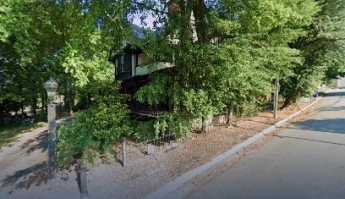Few things in life can cause as many problems as the suspension or revocation of a driver’s license. Anybody who learns that their license is no longer valid will want to contact our Winston-Salem suspended license attorney for help getting their license restored.
Call McMinn, Logan & Gray today to get started on the road to reinstating your license.
The lawyers at McMinn, Logan & Gray have years of experience helping people all over North Carolina get their licenses back in good standing after tense encounters with police officers. We can help determine the issue with your North Carolina driver’s license and then fight to regain your privileges.
Types of Cases Our Winston-Salem Suspended License Attorney Handles
There are several reasons why a driving license can suddenly be in poor standing. Revocation or suspension of driving privileges can be the result of:
- Amassing 12 or more license points for moving traffic violations in any three-year period — license suspension of up to 60 days
- Driving while impaired (DWI) conviction — one-year license suspensions for first-time offenders, four-year suspension for the second DWI within three years of the first DWI
- Refusing to submit to or failing a breath test — one-year suspension
- Speeding by at least 15 mph more than 55 mph in a one-year period — minimum 30-day suspension
- Committing manslaughter while driving under the influence of drugs or alcohol — one-year suspension
- Driving without auto liability insurance — 30-day suspension
- Racing on a public highway or watching or betting on racing — three-year suspension
- Obtaining a driver’s license or learner’s permit under false pretenses — one-year suspension
- Driving with a suspended license or no license — suspension of up to five years
People can also face suspensions or revocations for failing to respond to a North Carolina DMV notice, failure to appear in court, not paying traffic tickets, fines, or surcharges, not paying child support, illegally transporting alcoholic beverages, or driving recklessly or aggressively.
North Carolina Laws on Suspended Licenses
According to North Carolina driving without a license laws, an individual whose driver’s license is revoked and who drives a motor vehicle on North Carolina highways while the license is revoked commits a Class 3 misdemeanor.
Any person whose driver’s license was revoked because of an impaired driving revocation and who drove a motor vehicle on North Carolina highways commits a Class 1 misdemeanor.
An individual who has been disqualified but drives a commercial motor vehicle during their disqualification period commits a Class 1 misdemeanor and will be further disqualified for an additional period as follows:
- A first offense of driving while disqualified — a disqualification for the same period as what the person was disqualified for when the offense occurred
- A second offense of driving while disqualified — a disqualification for a period equal to two times the amount for which the person was disqualified when the offense occurred
- A third offense of driving while disqualified — disqualified for life
Possible Criminal Penalties in Winston-Salem, NC
Driving on an invalid license is generally a misdemeanor offense in North Carolina.
The three types of possible penalties for misdemeanor convictions include:
- Active punishment — a jail sentence the alleged offender serves in a local or state jail or another confinement facility
- Intermediate punishment — may involve a judge sentencing the alleged offender to supervised probation with possible house arrest provisions, electronic monitoring, drug treatment court, and brief periods in a jail or other confinement facility
- Community punishment — usually forgoes all jail time and involves a fine, probation, and/or community service
Sentences in North Carolina are also based on prior conviction levels, with the three levels being:
- Level I — no previous convictions
- Level II — one to four previous convictions
- Level III — five or more previous convictions
After a judge reviews an alleged offender’s prior convictions, sentences can include:
- Class 3 misdemeanors — up to 30 days of active, intermediate, or community punishment and a $200 fine
- Class 2 misdemeanors — up to 60 days of active, intermediate, or community punishment and a $1,000 fine
- Class 1 misdemeanors — up to 120 days of active, intermediate, or community punishment and a fine with no statutory maximum that is at the judge’s discretion
- Class A1 misdemeanors — up to 150 days of active, intermediate, or community punishment and a fine with no statutory maximum that is at the judge’s discretion
Aggravating and Mitigating Factors
Misdemeanors can involve mitigating or aggravating factors. Aggravated and mitigated sentences are established under North Carolina General Statute § 15A-1340.16.
Mitigating Factors
- The alleged offender committed the alleged offense under coercion, duress, threat, or compulsion that was not sufficient to constitute a defense but significantly reduced culpability.
- The alleged offender was a passive participant or played a minor role in committing the alleged offense.
- The alleged offender was suffering from a mental or physical condition that was insufficient to constitute a defense but significantly reduced the alleged offender’s culpability for the alleged offense.
- The alleged offender’s age, immaturity, or limited mental capacity at the time of the commission of the alleged offense significantly reduced the alleged offender’s culpability for the alleged offense.
- The alleged offender made substantial or full restitution to the alleged victim.
- The alleged victim was more than 16 years of age and was a voluntary participant in the alleged offender’s conduct or consented to it.
- The alleged offender assisted in the apprehension of another felon or testified truthfully on behalf of the prosecution in another felony prosecution.
- The alleged offender acted under strong provocation, or the relationship between the alleged offender and the alleged victim was otherwise extenuating.
- The alleged offender could not reasonably foresee that the alleged offender’s conduct would cause or threaten serious bodily harm or fear, or the alleged offender exercised caution to avoid such consequences.
- The alleged offender reasonably believed that the alleged offender’s conduct was legal.
- Prior to an arrest or at an early stage of the criminal process, the alleged offender voluntarily acknowledged wrongdoing in connection with the alleged offense to a law enforcement officer.
- The alleged offender has been a person of good character or has had a good reputation in the community in which the alleged offender lives.
- The alleged offender is a minor and has reliable supervision available.
- The alleged offender has been honorably discharged from the Armed Forces of the United States.
- The alleged offender has accepted responsibility for the alleged offender’s criminal conduct.
- The alleged offender entered and is currently involved in or successfully completed a drug treatment or alcohol treatment program following the arrest and prior to trial.
- The alleged offender supports the alleged offender’s family.
- The alleged offender has a support system in the community.
- The alleged offender has a positive employment history or is gainfully employed.
- The alleged offender has a good treatment prognosis, and a workable treatment plan is available.
- Any other mitigating factor that is reasonably related to the purposes of sentences.
Aggravating Factors
- The alleged offender induced others to participate in the commission of the alleged offense or had a position of leadership relating to other participants.
- The alleged offender joined with more than one other person in committing the alleged offense and was not charged with committing a conspiracy.
- The commission of the alleged offense was for the benefit of, or at the direction of, a criminal gang as defined by North Carolina General Statute § 14-50.16A(1), with intent to either further, promote, or assist in criminal conduct by gang members, and the alleged offender was not charged with committing a conspiracy.
- The alleged offense was committed to avoid or prevent a lawful arrest or effect an escape from custody.
- The alleged offender was hired or paid to commit the alleged offense.
- The alleged offense was committed to disrupt or hinder the lawful exercise of any governmental function or the enforcement of laws.
- The alleged offense was committed against or caused serious injury to a present or former Division of Adult Correction and Juvenile Justice of the Department of Public Safety employee, law enforcement officer, jailer, emergency medical technician, fireman, ambulance attendant, social worker, justice or judge, clerk or assistant or deputy clerk of court, magistrate, juror, prosecutor, or witness against the alleged offender, while they were engaged in the performance of official duties or because of the exercise of their official duties.
- The alleged offense was committed against or proximately caused serious harm as defined in North Carolina General Statute § 14-163.1 or death to a law enforcement agency animal, assistance animal, or search and rescue animal as defined in North Carolina General Statute § 14-163.1, while engaged in the performance of the animal’s official duties.
- The alleged offense was especially heinous, atrocious, or cruel.
- The alleged offender knowingly created a considerable risk of death to more than a single person by means of a weapon or device that would normally be hazardous to the lives of more than one person.
- The alleged offender held public elected or appointed office or public employment at the time of the alleged offense, and the alleged offense was directly related to the conduct of the office or employment.
- The alleged offender is a firefighter or rescue squad worker, and the alleged offense is directly related to their service as a firefighter or rescue squad worker.
- The alleged offender either was armed with or used a deadly weapon at the time of the alleged crime.
- The alleged victim was very young, very old, mentally or physically infirm, or handicapped.
- The alleged offender committed the alleged offense while on pretrial release on another charge.
- The alleged offender has, during the 10-year period prior to the commission of the most recent alleged offense, been found by a court to be in willful violation of conditions of probation that were imposed pursuant to a suspended sentence or was found by the Post-Release Supervision and Parole Commission to be in willful violation of a condition of parole or post-release supervision imposed pursuant to their release from incarceration.
- The alleged offender involved a person under the age of 16 in the commission of the crime.
- The alleged offender committed the alleged offense and either knew or reasonably should have known that a person under 18 years of age who was not involved in the commission of the alleged offense was in a position to see or hear the alleged offense.
- The alleged offense involved an attempted or actual taking of property of great monetary value or damage causing great monetary loss, or the alleged offense involved an unusually large quantity of contraband.
- The alleged offender took advantage of a position of trust or confidence, including a domestic relationship, to commit the alleged offense.
- The alleged offense involved the sale or delivery of a controlled substance to a minor.
- The alleged offense involved the manufacture of methamphetamine and was committed where a person under 18 years of age lives, was present or was otherwise endangered by exposure to the drug, its ingredients, its by-products, or its waste.
- The alleged offense is the manufacture of methamphetamine and was committed in a dwelling that is one of four or more contiguous dwellings.
- The alleged offense for which the alleged offender stands convicted was committed against an alleged victim because of the alleged victim’s race, color, religion, nationality, or country of origin.
- The alleged offender does not support the alleged offender’s family.
- The alleged offender has previously been adjudicated delinquent for an alleged offense that would be either a Class A, B1, B2, C, D, or E felony had it been committed by an adult.
- The serious injury inflicted upon the alleged victim is permanent and debilitating.
- The alleged offense is a violation of North Carolina General Statute § 14-43.11 (human trafficking), North Carolina General Statute § 14-43.12 (involuntary servitude), or North Carolina General Statute § 14-43.13 (sexual servitude) and involved multiple alleged victims.
- The alleged offense is a violation of North Carolina General Statute § 14-43.11 (human trafficking), North Carolina General Statute § 14-43.12 (involuntary servitude), or North Carolina General Statute § 14-43.13 (sexual servitude), and the alleged victim suffered serious injury as a result of the alleged offense.
- Any other aggravating factor that is reasonably related to the purposes of sentencing.
Winston-Salem Courts
The district court hears misdemeanors and infractions.
The district courthouse is in the Forsyth County Courthouse, located at:
200 N Main St.
Winston Salem, NC 27101
(336) 779-6300
Forsyth County is District 22, but other nearby courts include:
District 22b Davidson County District Court Thomasville
22 Randolph Street
Thomasville, NC 27360
(336) 474-3185
District 18 Guilford County District Court High Point
505 East Green Drive
High Point, NC 27262
(336) 801-5252








